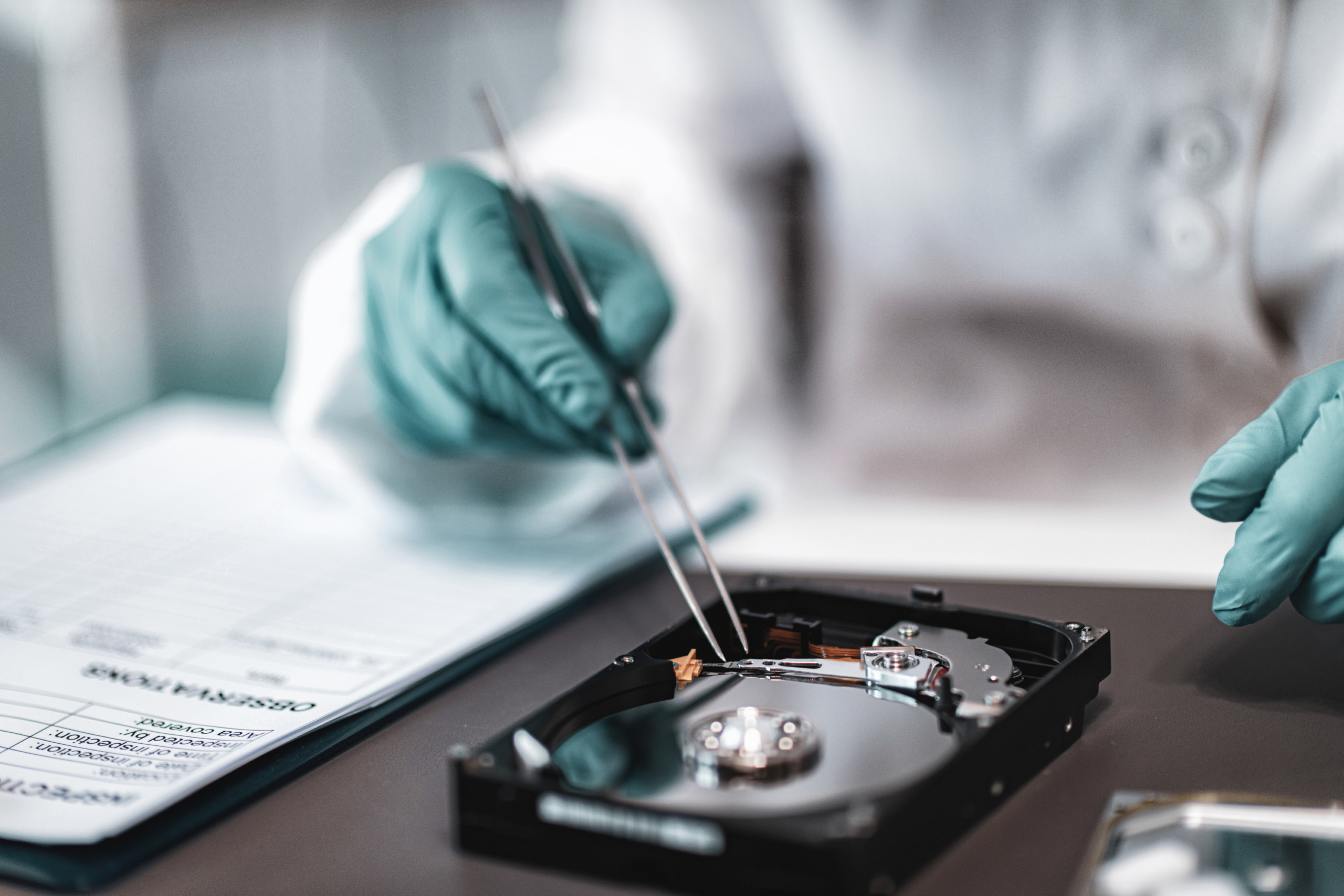From Forensic Science…to Digital Forensics
23/10/2023

Digital Investigation
In today’s fast-changing world, digital devices are everywhere. This means that they’re often present when events of interest occur, which has increased the need for experts in digital forensic science around the globe who can identify, capture and analyse digital device content. Almost every investigation of every type involves some form of digital information.
Digital forensic science isn’t just about police work; it also applies to government agencies and organisations, private companies, and can even be a stepping stone into the world of cybersecurity, offering many different career paths.
A Great Fit?

People who work in digital forensic science come from a range of backgrounds and avenues, such as the military, police, computer science and maths. So, why are forensic science students a great fit for specialising in digital forensic science?
Their thorough training in collecting and analysing evidence, as well as their attention to detail, gives them a strong foundation for navigating the complex world of digital investigations. They have a unique mix of skills and knowledge that enables them to analyse situations and find relevant information. They’re good at solving problems and thinking critically – crucial in a field where experts deal with large amounts of data and often need to uncover hidden or encrypted information.
Highly Adaptable
Moreover, those with a background in forensic science have a solid understanding of laws and ethics. Not only are they already trained in communicating their results to a lay audience, they also grasp the importance of preserving the integrity of and documenting their process. Their background makes them highly adaptable, allowing them to quickly understand computer science and digital forensic science fundamentals. This adaptability is important in a field that’s always changing.
Forensic science does not just concern things like blood and DNA, but now the ability to understand and evaluate digital evidence is of paramount importance.
Funding Support:
If you’re interested in pursuing a Digital Forensics MSc with Cranfield University, the CCL Future of Digital Forensic Science Scholarship may be just what you need to start your journey.
Categories & Tags:
Leave a comment on this post:
You might also like…
Company codes – CUSIP, SEDOL, ISIN…. What do they mean and how can you use them in our Library resources?
As you use our many finance resources, you will probably notice unique company identifiers which may be codes or symbols. It is worth spending some time getting to know what these are and which resources ...
Supporting careers in defence through specialist education
As a materials engineer by background, I have always been drawn to fields where technical expertise directly shapes real‑world outcomes. Few sectors exemplify this better than defence. Engineering careers in defence sit at the ...
What being a woman in STEM means to me
STEM is both a way of thinking and a practical toolkit. It sharpens reasoning and equips us to turn ideas into solutions with measurable impact. For me, STEM has never been only about acquiring ...
A woman’s experience in environmental science within defence
When I stepped into the gates of the Defence Academy it was the 30th September 2019. I did not know at the time that this would be the beginning of a long journey as ...
Working on your group project? We can help!
When undertaking a group project, typically you'll need to investigate a topic, decide on a methodology for your investigation, gather and collate information and data, share your findings with each other, and then formally report ...
From passion to purpose: My journey at the Pinnacle of Aviation
By: Sultana Yassin Abdi MSc Air Transport Management, Current Student Born and raised in the vibrant landscape of the UAE, with roots stretching back to Somalia, my life has always been ...







